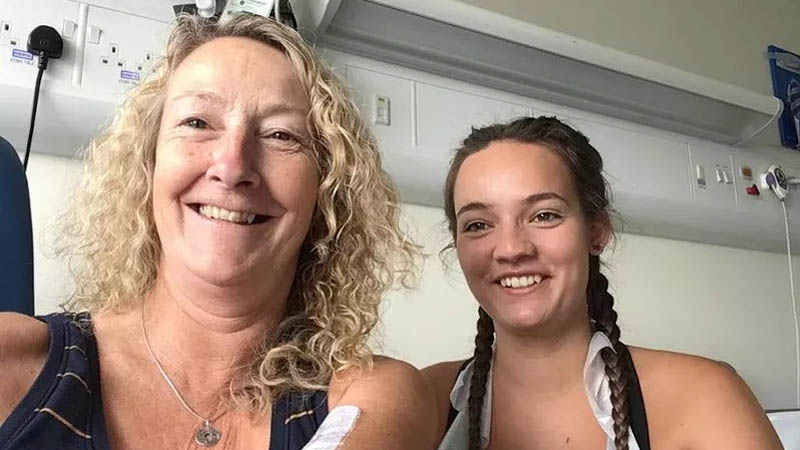
Persistent Husband’s Urging Leads to Life-Saving Diagnosis for Wife
Linda Sellar, 65, initially dismissed her persistent cough as a minor ailment, but thanks to her husband’s insistence, she sought medical advice that led to the discovery of a life-threatening condition. Following tests that included blood work and a bone marrow biopsy, Linda was diagnosed with acute myeloid leukemia (AML), a severe form of cancer.
Diagnosed in 2019, Linda faced the grim statistics of AML, which has a survival rate of only 13.6% beyond five years after diagnosis. Despite her fears of not living to enjoy her retirement, Linda underwent two rounds of chemotherapy and a life-saving stem cell transplant from her son, Jack. Now in remission, the former civil servant is able to enjoy her passions such as walking, skiing, and traveling with her husband.
Speaking to Plymouth Live, Linda expressed her gratitude for her husband’s persistence and her GP’s attentiveness. She now advocates for others to proactively seek medical advice if they experience similar symptoms, emphasizing the importance of insisting on necessary tests.
The journey was fraught with challenges, including hair loss, fevers, and a serious fungal lung infection, which highlighted the harsh realities of current cancer treatments. In response to these challenges, research charity Leukaemia UK is investing in innovative research aimed at reducing the harsh effects of treatments like chemotherapy.
Professor Terry Rabbitts, of the Institute of Cancer Research in London, is pioneering a novel approach that targets AML cancer cells through “fusion proteins” unique to cancer cells. His team is developing a technology to deliver antibodies directly into cancer cells to neutralize these proteins, promising a future of treatments with fewer side effects.
Fiona Hazell, chief executive of Leukaemia UK, underscores the need for new treatments, noting that methods have largely been unchanged since the 1960s and can have devastating side effects. The funding of projects like Professor Rabbitts’ is part of an ongoing effort to find more effective and gentler treatments for leukemia patients.
This breakthrough research not only brings hope to patients like Linda but also holds potential benefits for other blood cancers and solid tumors. For more information on this life-changing work, visit www.leukaemiauk.org.uk.
